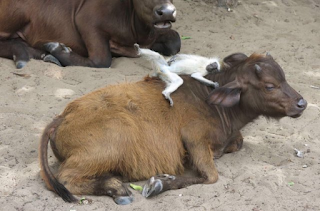Situational Hand Switch- The main character is injured or partially incapacitated, forcing them to use other parts of their body to accomplish tasks. We see the character grow despite their struggles.
Iconic examples of this trope:
-Eragon. The character Eragon breaks his wrist and has to fight with his other arm for some time.
-Game of Thrones. Jaime Lannister had his hand cut off. The great swordsman had to learn to fight with his other arm.
-Star Wars. Luke Skywalker had his hand cut off by Darth Vader. Luke, however, gets around this by obtaining a robotic hand.
-Peter Pan. Captain Hook had his hand cut off. It was replaced by his hook!
-The MCU. Bucky Barnes (also known as the Winter Solider) lost his arm falling from a train. It was replaced with a cybernetic implant.
God of Thunder- Religions and stories love to have some sort of deity who can control lightning and thunder.
Iconic examples of this trope:
-Thor. God of Thunder in the MCU and in Norse mythology. He controls lightning with a number of different weapons that only the worthy are capable of wielding.
-Zeus. The head god of the Greek Pantheon, he is known for his iconic lightning bolt he uses as a weapon.
-Jupiter. Zeus's Roman counterpart.
-Indra. Indian mythology.
-Keranos. God of storms in Magic: The Gathering.
-Zapdos, Raikou, Thundurus, Zekrom. These are all iconic legendary electric-type pokemon.
Fur vs Fang- The battle between werewolves and vampires appears in numerous media despite the two creatures having no inherent difference requiring conflict
Iconic examples of this trope:
-The 2004 movie "Van Helsing." Only a werewolf is capable of killing Dracula.
-The Underworld franchise. The entire movie franchise is based on the battle between werewolves and vampires.
-The Dresden Files. Monster hunters known as the "Alphas" can turn themselves into wolves. They fight off vampires from time to time.
-The Vampire Diaries.
-The Mortal Instruments.
-Tolkien's LOTR Universe. Vampires and werewolves both serve Sauron but hate each other.
-Twilight.
"I Just Want to Be Normal"- The main character of the story doesn't want the responsibility, powers, or strength that they have come to possess.
Iconic examples of this trope:
-Elsa in Frozen. Elsa tries to hide her powers to be seen as normal.
-Miles Morales in Into the Spider-Verse. He wants to fit in at school even before he has powers. he struggles with his powers as various Spiderman characters depend on him.
-Maximus in Gladiator. Emperor Marcus Aurelius wants Maximus to be the next Emperor. Maximus wants to return home to spend time with his family.
-Cypher in The Matrix. He aligns himself with the Matrix to catch Morpheus so they will return him to the Matrix.
-X-Men. The ongoing struggle between mankind and mutant-kind creates strife despite so many mutants wanting nothing more than to be "normal."
Mutants in the X-Men often struggle with their powers- they just want to be normal.
Some tropes are so common that there's no reason to give examples that have them. Such tropes include:
The "Nice Guy"
The "Sensitive Guy"
The "Manly Man"
The "Clingy, Jealous Girl"
The "Girly Girl"
The "Damsel in Distress"
It seems quite clear that despite any storyteller's desire to create a new "type" of character, there are so many different tropes that it is almost impossible to create a new trope that does not already exist. Personalities, types of characters, types of conflict, and more are all summarized by a number of different tropes. Thus, while there are so many stories in the world, I wonder- are there not a ton of stories that are effectively the same? For example, I think of the Hallmark Christmas movies my girlfriend loves. I hate them. Why? If you've seen one, you've seen them all because the same tropes are present in every movie.
Are there a limited number of stories that can be created? Is the media, story-telling ability of the author, and the "shell" of the character (boy, girl, cat, bear, angel, alien, bacteria, etc...) all that differentiates the exact same story from another almost exactly like it? I think of Warriors (books about clans of cats who work together or fight at different points) and the MCU. In all honesty, is there that big of a difference? Both have character development, internal struggles, teamwork, and more. It's just that one is about cats and one is about superheroes. At the core, are they the same story?
This website is making me think ALOT about storytelling.


















